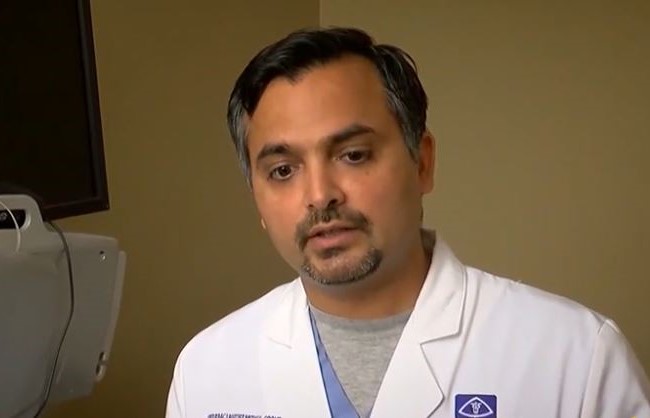BY VEENA RAO
Memphis, TN, November 15, 2025: The federal case against Memphis gynecologic oncologist Dr. Sanjeev Kumar has changed direction in a major way. In recent weeks, a federal judge dismissed the most serious and attention-grabbing charges — including the widely discussed Travel Act allegations — and threw out several broad FDA charges that prosecutors had based on thousands of procedures. What is left from the original indictment are a few specific FDA counts involving medical devices seized on one particular day, along with several health-care fraud counts that now make up the core of the government’s case.
Even with the case narrowed, prosecutors have now returned with a new 46-count indictment, filed on November 3. These new charges focus on claims that Dr. Kumar reused or mishandled medical devices meant for one-time use, and then billed insurance programs as if the devices were new. Dr. Kumar has denied all wrongdoing.
Judge Narrowed the Case in October
The new charges came shortly after an important October 17 ruling by Chief U.S. District Judge Sheryl H. Lipman, who dismissed 17 out of 36 counts from the earlier indictment. The judge threw out the Travel Act charges because the government did not allege behavior that met the legal definition of “sexual activity.” She also dismissed a number of FDA counts because prosecutors had grouped what looked like thousands of patient visits into single charges, which the court said was not allowed.
This ruling changed the shape of the case and removed the allegations that originally drew the most public attention. What remains from the first indictment are a small number of FDA charges tied to specific devices taken from Dr. Kumar’s clinic on April 16, 2024, along with several health-care fraud charges related to billing Medicare and Medicaid.
Defense Says Early Story Was Misleading
In an analysis posted by Chapman Law Group, Dr. Kumar’s attorneys said the judge’s ruling shows that the government’s early description of the case went further than the law allowed. The firm wrote that “the most inflammatory counts in the government’s case… have now mostly been dismissed,” and pointed out that the remaining charges are “discrete, testable events — not headline fodder.”
The defense also criticized how the government first presented the case to the public. Attorney Ronald W. Chapman II wrote, “On March 10, 2025, Dr. Kumar’s defense team put it in writing: the case had been ‘sensationalized,’ transforming alleged sterilization/billing disputes into a sex-trafficking narrative designed to inflame a vulnerable patient population.”
Chapman pointed to the judge’s findings about the dismissed counts, saying prosecutors “tried to roll thousands of patient procedures into single counts,” which he argued could cause problems because different jurors might disagree about which acts they were convicting on. He also noted that the Department of Justice later removed parts of its original February 28 press release, saying early descriptions of the case “outran the law.”
Government Stands by Its Main Accusations
Despite the dropped charges, prosecutors say Dr. Kumar performed unsafe medical procedures and cheated federal health programs. They argue that reusing single-use devices and performing unnecessary procedures put patients in danger and led to improper Medicare and Medicaid billing.
The new indictment appears to show prosecutors adjusting their approach to match what the judge said was required — breaking the accusations into smaller, clearer counts.
Case Still Evolving
Dr. Kumar is still presumed innocent, and both the narrowed original charges and the new 46-count indictment will now move forward in court. A major theme of the case has become the difference between the early public claims made about Dr. Kumar and what now remains legally after the judge’s rulings.
As the case continues, the key question will be whether the new, more detailed charges survive the same level of scrutiny that led to the earlier dismissals — and how the evidence fits into this newly rewritten version of the case.
Image credit: Action News/Memphis.



